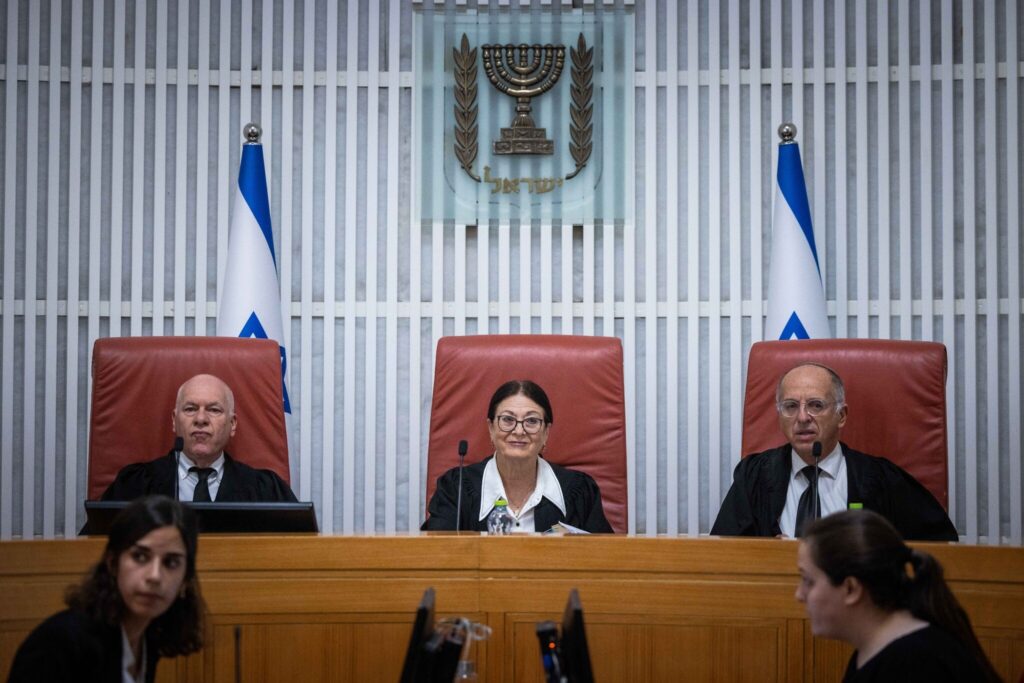The United Kingdom has categorised “designated crypto assets” for Investment Manager Exemption (IME) for the 2022-2023 fiscal tax year.
Commissioners for His Majesty’s Revenue and Customs (HMRC) have enacted the legislation which lawmakers announced in April this year. The tax body of the UK government passed the new regulation this week, which will enter force on 1 January next year.
While the government has not defined “designated crypto assets,” the new regulations refer to “investment transactions” cited in Section Two of the Investment Transactions (Tax) Regulations 2014.
IME allows the UK to boost its status as a financial hub and allows non-UK investors residing in the country the right to select British investment managers. The latter can conduct some investments on their behalf without becoming subject to British taxation rules.
The new IME will place “designated cryptoassets” as stocks, included in Whitehall’s FinTech Sector Strategy in early April.
According to the consultancy paper, the measures,
“will provide certainty of tax treatment to U.K. investment managers and their non-U.K. resident investors who are seeking to include cryptoassets within their portfolios, and we anticipate that this will also encourage new cryptoasset investment management businesses to base themselves in the U.K.”
The news comes as multiple countries recommend financial regulations tighten across their respective governments. Countries such as Israel, South Korea, Australia, and the United States have submitted recommendations linked to the collapse of several key crypto exchanges.
This comes after FTX, one of the world’s largest cryptocurrency exchange platforms, filed for Chapter 11 bankruptcy after mismanaging billions in funding. Bahamian authorities have arrested the company’s former chief executive, Sam Bankman-Fried, who awaits extradition to the United States for his malfeasance.
Alaska is set to launch monetary regulations for virtual currencies starting 1 January next year, reports revealed this week.
According to the Cooley Law Firm, Alaska will force enterprises using virtual currencies to apply for and obtain money transition licences with the state government.
Alaska, the most northwestern state in the United States, changed money transmission regulations to determine the meaning of a “virtual currency.”
State Crypto Rules
The state’s Division of Banking and Securities (DBS) adopted changes to its local Administrative Code, stating: “[Virtual currencies are a] digital representation of value that is used as a medium of exchange, unit of account, or store of value; and is not money, whether or not denominated in money.”
The code will also require individuals “engaging in money transmission activity involving virtual currency” to submit licencing applications to conduct such transactions.
It also defines “permissible investments” and “monetary value,” but states reward programmes and online gaming virtual coins are not included as virtual currencies.”
Agreements Broken
Previously, crypto-linked platforms have received Limited Licensing Agreement (LLA) from Alaska’s DBS, but digital currencies were not included.
Under the current changes, Cooley Law Firm wrote: “As a result of the explicit inclusion of virtual currency activity as money transmission activity requiring a license, the DBS is phasing out the LLA requirement, and LLAs currently in effect will be voided and removed from the Nationwide Multistate Licensing System record on January 1, 2023. It is not clear if the change to the regulations will require current Alaska licensees that engage in virtual currency activity to take any action.”
Other nations such as Israel, Australia, South Korea, and others may require crypto firms to apply for licences under stricter regulations. The news comes amid the ongoing crisis with FTX, which collapsed into administration on 11 November this year, due to fraud and monetary misappropriation.
A key executive from one of the world’s largest cryptocurrency exchanges has backed decentralised protocols, adding open-source code and smart contracts were the “ultimate form of disclosure.”
In a blog post, Coinbase chief executive Brian Armstrong advocated tightening regulations on centralised platforms. He also outlined steps government regulators could take to reinstate trust in the crypto industry amid the ongoing FTX crisis.
In the post, he said:
“Second, smart contracts, which power DeFi and Web3 apps, are public and open source by default. This means anyone can go audit the code to see if it really does what it claims to do. This is the ultimate form of disclosure. Instead of ‘don’t be evil’ [we] can have ‘can’t be evil’, where you can trust the laws of math instead of human beings.”
A List of Recommendations
According to the executive, the industry needed “additional transparency and disclosure” to counter human error and fiscal malfeasance. Armstrong continued that the fall of disgraced crypto exchange FTX would “be the catalyst we need to finally get new legislation passed.”
He added that US lawmakers should pass stablecoin regulations to build standard financial service laws, where regulators could monitor implementing a state trust charter or similar mandate.
Stablecoin issuers should also meet “basic cybersecurity standards” and offer blacklisting [procedures] to comply with global sanctions regimes, he said.
Also, one major bill from US senator Bill Hagarty, the Stablecoin Transparency Act, is set to pass the Senate in the near future. Armstrong recommended targeting crypto exchanges and custodians with federally-sanctioned licencing and registration.
This would take place after Congress passed sufficient stablecoin regulation, according to the CEO. He also urged lawmakers to force the US Securities Exchange Commission (SEC) and the Commodities Future Trading Commission (CFTC) to sort the world’s top 100 crypto coins by market capitalisation and label them as securities or commodities.
Continuing, Armstrong stated: “If asset issuers disagree with the analysis, the courts can settle the edge cases, but this would serve as an important labelled data set for the rest of the industry to follow, as, ultimately, millions of crypto assets will be created.”
Foreign Sources, Domestic Consequences
He also called on regulators to determine how crypto exchanges from foreign sources operated in their respective subsidy branches worldwide.
He said: “If you are a country who is going to publish laws that all cryptocurrency companies need to follow, then you need to enforce them not just domestically but also with companies abroad who are serving your citizens.”
Concluding, Armstrong wrote,
“Don’t take that company’s word for it. Actually go check if they are targeting your citizens while claiming not to […] If you don’t have the authority to prevent that activity […] you will unintentionally be incentivizing companies to serve your country from offshore.”
The news comes as global regulators determine the next steps against cryptocurrencies amid the ongoing bankruptcy and prosecution of FTX and its executives. Currently, Bahamian authorities have detained FTX’s ex-chief executive Sam Bankman-Fried and may extradite him to the US.
Numerous countries, including Australia, South Korea, Israel, the United States, and others have begun developing recommendations for regulating cryptocurrency markets. The plans come amid a volatile bear market, which has seen numerous exchanges collapse due to fraudulent or mishandling of funding.
Stablecoins have gained popularity in the crypto industry despite ongoing market volatility.
A Coin Metrics report found that on-chain stablecoin settlements topped $7 trillion this year and is set to reach $8 trillion by the end of the year.
The donations have continued throughout the year, most recently with the United Nations’ plan to send $USDC to Ukrainians displaced from their homes. #Stablecoins have settled more than $7 trillion in value, a record-breaking value compared to previous years. pic.twitter.com/n81OfNCtWS
— CoinMetrics.io (@coinmetrics) December 20, 2022
Peter Johnson, venture co-head at Brevan Howard Digital, said in a Wednesday tweet that stablecoin settlements had surpassed those from Mastercard and American Express.
Currently, Visa, the largest card platform, processes $12 trillion a year. According to Johnson, on-chain stablecoin volumes would exceed those from Visa.
Despite his observations, others have noted that credit card and stablecoin settlement volumes are completely different. The former involves consumer spending, with the latter involving cryptocurrency trading and decentralised financing.
3/ (Note that this is just on-chain settlement volume, and does not include trading volume on centralized exchanges)
— Peter Johnson (@TheChicagoVC) December 21, 2022
Regulations remain the largest obstacle for stablecoins as they are an emerging technology compared to credit cards.
Some lawmakers in the United States Senate have submitted legislation to allow non-state and non-bank entities to issue stablecoins. Such institutions would need to receive a federal licence from the US Office of the Comptroller of the Currency (OCC) backed by “high-quality liquid assets.”
According to current figures, stablecoins also have a market capitalisation of 16.5 percent of the total market, or roughly $140 billion, with Tether (USDT) consisting of 66.3 billion.
South Korea’s northeastern and second-largest city Busan has announced it would drop most of its cryptocurrency partners on centralised global exchanges. The decision comes after several prominent exchanges and projects – FTX, Terra/Luna, and Voyager – collapsed in recent months.
The coastal city has been named South Korea’s blockchain capital and recently revealed an 18-person steering committee. None of the people sitting on the body were from major centralised platforms, including Binance, Gate.io, Huobi Global, FTX, and Crypto.com.
The steering committee aims to advise government authorities and investors on operating cryptocurrencies along with other digital assets. It also hopes to deepen cooperation for cryptocurrency frameworks and cooperate with foreign entities.
Second Thoughts?
News of FTX’s collapse forced Busan authorities to rethink including centralised exchanges. However, it stated it could proceed with its plans without assistance from outside sources.
According to reports, committee members stated problems with crypto platforms like FTX and others “seem to have influenced [the decision].” Other stated centralised exchanges were never included in city and supported initial liquidity offerings.
The city also plans to outline how it will separate securities and non-securities assets, along with listing and monitoring channels for assets. It established a fund for the initiative in the first half of the year, leading to the city founding a regulation-free zone for blockchain in July 2019.
Efforts to back the initiative increased after telecoms giant Korea Telecom (KT) collaborated with the city to develop infrastructure to support blockchain technologies.
Core Scientific, a key Bitcoin (BTC) mining firm, has reportedly filed for Chapter 11 bankruptcy shortly after creditors extended a lifeline to the embattled firm.
The company received the protections in Texas, citing poor earnings and plummeting BTC values.
Financial services platform B Riley offered the $72 million non-cash financing bailout to Core Scientific. The deal included zero contingencies and $32 million with stipulations. The news comes after the firm’s value plummeted from $4.3 billion in July last year to $78 million to date.
To remain in operation, Core Scientific sold off 9,618 BTC in April this year. While it can continue with its mining operations, the firm cannot earn enough revenues to cover costs due to operations.
While the company continues to generate positive cashflows, the income is not sufficient to cover the operational costs, which involve repaying the lease for its Bitcoin mining equipment.
The firm previously filed for financial distress with the United States Securities and Exchange Commission (SEC) in late October. The company stated in its filing that high electricity fees, Bitcoin hash rate hikes, and low BTC prices led to the collapse of crypto lending firm Celsius, eliminating the latter’s Core Scientific debts.
Courts ordered Celsius to pay back clients a total of $44 million following its collapse. The news follows an agreement the lending firm reached with stakeholders, stating crypto held in custody accounts belonged to users and not centralised platforms.
News reports have found a video of officers searching a suspect’s vehicle, which contained seed phrases for a self-custody cryptocurrency wallet.
The video emerged and triggered outrage on social media. The incident took place in Nevada, where State Police revealed his seed phrase on body cam footage.
This video of cops in Nevada searching a suspect and finding a seed phrase is pretty wild. Imagine having your seed phrase become part of public record due to it being captured by an officer's body camera! pic.twitter.com/vS2vm0xh7N
— Jameson Lopp (@lopp) December 18, 2022
According to the video, the two officers showed his self-custody phrase written on a piece of paper, inadvertently publicising the information to the general public.
Social Media Response
The camera footage later sparked replies from the global crypto community. Binance chief executive Changpeng Zhao (CZ) cautioned people investing in crypto on the risks linked to storage methods.
Responding, he said: “I am a proponent of free choice. Feel free to hold your crypto anyway you wish. But learn the risks of each method.”
I am a proponent of free choice. Feel free to hold your crypto anyway you wish. But learn the risks of each method. 🙏 https://t.co/Yt6vOOnzZY
— CZ 🔶 Binance (@cz_binance) December 20, 2022
He added that investors should “learn to hold your own keys [by] starting with a small amount” until mastering the setup method and its technologies.
Learn to hold your own keys, by doing ALL of the following.
— CZ 🔶 Binance (@cz_binance) December 20, 2022
Recommend starting with a small amount, until you master the tech/setup involved. https://t.co/AiKzrZWkKz
Others recommended memorising the seed phrase, with most consisting of 12 to 24 words. However, CZ warned investors that forgetting the passcode would become a major flaw when storing data on the “brain wallet.”
The news comes after Paxful chief executive Ray Youssef urged investors to keep their wallets in self-custody to avoid the pitfalls of bankrupt centralised platforms such as FTX. He added he would send weekly reminders to Paxful users to move to self-custody to protect their holdings.
Ahead of FTX’s collapse, Sam Bankman-Fried tweeted that “everything is fine” and stated investors were assured their holdings were safe and accessible.
The company filed for Chapter 11 bankruptcy on 11 November, locking millions of customers out of their custodial wallets due to what authorities later discovered was the company’s misappropriation of funds.
Bahamian authorities recently detained Bankman-Fried and could extradite him to the United States for his role in the collapse of FTX, Alameda Research, and 130 linked affiliates.
The ongoing cryptocurrency bear market has sparked investors to hold Bitcoin (BTC) and Ether (ETH) amid increasing economic uncertainty.
This aims to hedge against losses, triggering speculation on the growing trend. The news comes two cryptocurrency addresses transferred a massive 22,982 ETH to new crypto wallets after a four-year lull.
#PeckShieldAlert Account Maintenance? Jump Trading-labeled address transferred 200k $ETH (~$237M) to a new address 0x73af without further outflow within the last 2 days pic.twitter.com/uxB76jtbbD
— PeckShieldAlert (@PeckShieldAlert) December 19, 2022
The total fund transfers came from Poloniex and Genesis at 9,878 ETH and 13,103 ETH, respectively. The accounts had not moved since Ether remained priced at $190 USD to $230 USD, according to Peckshield, a blockchain investigator. Conversely, the transaction took place after the cryptocurrency reached $1,200 per coin.
The website monitors suspicious activities across cryptocurrency exchanges. It provides key information such as networks, amounts, suspicion levels, and other key data.
Following Ethereum’s Merge upgrade, Ether has seen a massive surge in popularity after its energy consumption was slashed 99.9 percent and set its carbon footprint at roughly 0.1 million tonnes of CO2 each year, placing it as an attractive cryptocurrency to use.
Follow the Money
The news comes after numerous government watchdogs monitor crypto exchanges amid increasing tumultuous crypto market activity.
South Korean authorities stated in September it had found unusual foreign exchange transactions of $680 million USD, totalling $7.2 billion since mid-2022.
The nation’s Financial Supervisory Service (FSS) added in its investigation that 82 firms had transferred ‘abnormal’ funds across exchanges to local companies or locations abroad, triggering follow-ups from authorities.
Israeli courts have ruled the Government can legally seize cryptocurrencies from over 150 digital wallets allegedly linked to terrorist funding sources.
Citing a blacklist of crypto wallets, the Jewish News Syndicate reported that the Tel Aviv Magistrate Court would allow the nation to seize an additional $33,500 in funding with alleged ties to Hamas.
Previous court rulings allowed the seizure of crypto assets over ties to militant groups, but blocked additional funds in digital wallets.
According to reports, Hamas rules Palestine’s Gaza Strip and is a designated terrorist organisation by the United States, European Union, the United Kingdom, and Israel. It allegedly used Bitcoin to circumvent global sanctions, blockades, and other restrictions.
This sparked an executive order in July last year, allowing authorities to seize cryptocurrency accounts allegedly tied to Hamas. Most involved Tether (USDT), Ether (ETH), Binance Coin (BNB), and others.
Regulators Crack Down on Crypto
The news comes after Shira Greenberg, Israel’s Ministry of Finance chief economist, outlined recommendations for an enhanced digital asset regulatory framework in early December.
Her report recommended restrictions on cryptocurrency trading platforms, crypto issuers, and safe management of digital assets, among others, in the 109-page report.
The official submitted the recommendations’ list amid sustained scepticism and low rates of adoption of cryptocurrencies across the Middle Eastern nation. To date, only 0.04 percent of the world’s total crypto transactions take place in Israel.
Solidus Labs, a company that assesses and monitors blockchain risks for the cryptocurrency sector, reported this month that fraudsters created over 350 fake crypto tokens per day to scam investors.
According to the firm’s Rug Pull Report, scammers deployed 117,629 fraudulent tokens, up 41 percent from 83,400 tokens found in 2021.
The report also found that BNB Chain contained 12 percent of the world’s fake BEP-20 tokens, topping the list of scam token holders to date. The Ethereum network arrived second place at 8 percent of scammy ERC-20 tokens.
Shamcoins and Sticky Situations
The news comes amid a rise in cryptocurrency schemes, including rug pulls and honeypots.
Rug pulls take place when groups create tokens, rapidly increase their value, and then abandon the coin after extracting the project’s value. Honeypots, the most popular form of fraud, is a smart contract for tokens prohibiting coin buying and reselling.
Most centralised exchanges (CEXs) and custodial wallets, namely under US regulators, have faced massive rug pulls in recent history, scamming over 153 exchanges for $11 billion in Ether (ETH) cryptocurrencies.
Recently, Avraham Eisenberg launched a major rug pull on Mango Markets, defrauding investors of $117 million with his exploit altcoin Mango Inu.
He later stated he “did nothing wrong” and had conducted “legal” actions in the rug pull.
According to figures, US CEXs top the list of countries with fraudulent transactions, followed by the Bahamas, where FTX ex-chief executive Sam Bankman-Fried was arrested by authorities.
The Squid Game (SQUID) token ballooned 45,000 percent before its founders disappeared with its funds, costing investors $3.3 million.
Such concerning instances have been on the rise since September 2020, following the collapses of Voyager, Celsius, and most recently, the massive bankruptcy of crypto exchange FTX.












